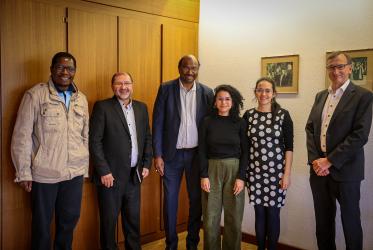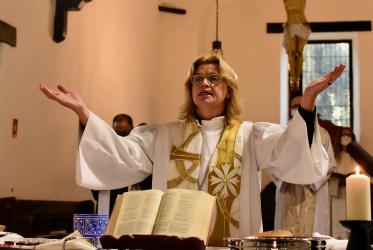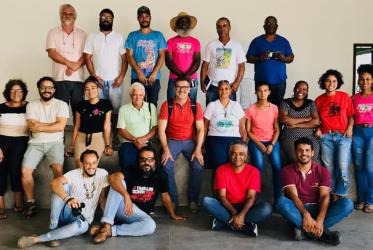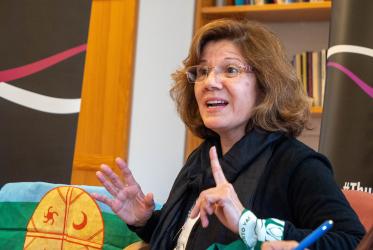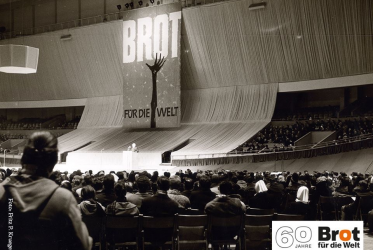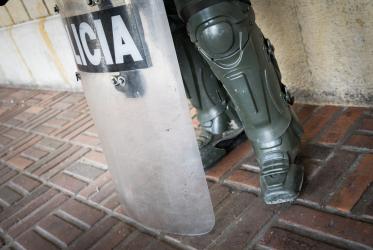Displaying 1 - 20 of 60
18 January 2024
Justapaz shares peace-building work in Colombia
10 October 2023
In Chile, “Churches’ ministry of reconciliation is key”
29 November 2022
Pulling together for a living River Pardo
02 July 2021
Brazilian churches call for transformative racial justice
23 November 2020
Thomas Kang: “Hope is what moves Christians”
21 August 2020
“Women must keep resisting,” urges Chilean theologian
10 March 2020
Chilean crisis sparks churches’ alarm and concern
24 October 2019

